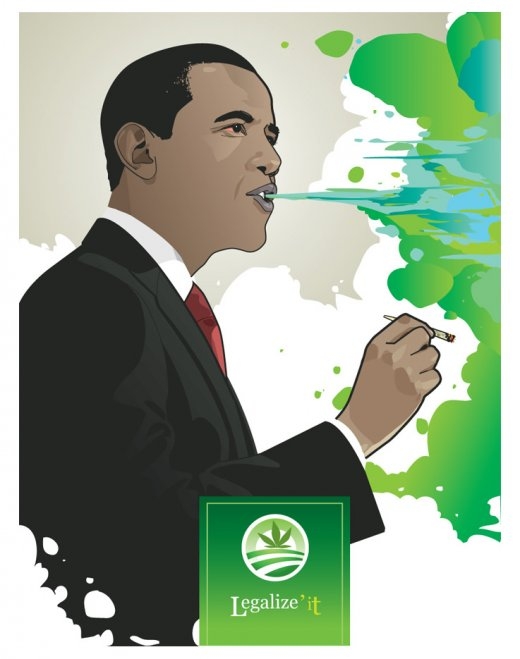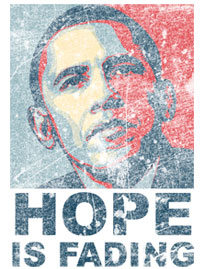
LOS ANGELES TIMES: Marijuana has been approved by California, many other states and the nation’s capital to treat a range of illnesses, but in a decision announced Friday the federal government ruled that it has no accepted medical use and should remain classified as a highly dangerous drug like heroin. The decision comes almost nine years after medical marijuana supporters asked the government to reclassify cannabis to take into account a growing body of worldwide research that shows its effectiveness in treating certain diseases, such as glaucoma and multiple sclerosis. Advocates for the medical use of the drug criticized the ruling but were elated that the Obama administration has finally acted, which allows them to appeal to the federal courts. The decision to deny the  request was made by the U.S. Drug Enforcement Administration and comes less than two months after advocates asked the U.S. Court of Appeals to force the administration to respond to their petition. “We have foiled the government’s strategy of delay, and we can now go head-to-head on the merits,” said Joe Elford, the chief counsel for Americans for Safe Access and the lead attorney on the lawsuit. Elford said he was not surprised by the decision, which comes after the Obama administration announced it would not tolerate large-scale commercial marijuana cultivation. “It is clearly motivated by a political decision that is anti-marijuana,” he said. MORE
request was made by the U.S. Drug Enforcement Administration and comes less than two months after advocates asked the U.S. Court of Appeals to force the administration to respond to their petition. “We have foiled the government’s strategy of delay, and we can now go head-to-head on the merits,” said Joe Elford, the chief counsel for Americans for Safe Access and the lead attorney on the lawsuit. Elford said he was not surprised by the decision, which comes after the Obama administration announced it would not tolerate large-scale commercial marijuana cultivation. “It is clearly motivated by a political decision that is anti-marijuana,” he said. MORE
RELATED: Consider public statements by Obama and Holder that contradict the position the administration is now taking. In a March 2008 interview with Oregon’s Mail Tribune, Obama said, “I’m not going to be using Justice Department resources to try to circumvent state laws on this issue.” Two months later, when another Oregon paper, Willamette Week, asked Obama whether he would “stop the DEA’s raids on Oregon medical marijuana growers,” he replied, “I would, because I think our federal agents have better things to do.” MORE
RELATED: Medical marijuana advocacy groups say that contradicts Obama’s pledges in October 2009 to let states set their own policies. They also accuse the administration of violating its stated policies with frequent raids on suppliers in the 16 states with such medical marijuana laws, and more recently with warnings to officials in at least 10 states that they could face prosecution if they authorized dispensaries to sell pot to patients. MORE
RELATED: Obama made three explicit promises during the campaign. He said the feds would not go after medical marijuana  facilities operating legally under state law, and he appeared to make good on that. He said the crack-powder laws needed to be rolled back, and they got a major reform of that law last year. Third, he said he would support federal funding for needle exchange, and they did support the efforts in Congress on that. Since that time, it looks more and more like the drug czar’s office has been captured by the drug warriors and the anti-drug fanatics who dominated policy-making in the Clinton and Bush administrations. The rhetoric coming out of the drug czar’s office is almost indistinguishable from the rhetoric of past administrations. The personnel they’ve been hiring, and the people they talk to, are overwhelmingly those who have been associated with the failed drug war policies of the past. And meanwhile the Justice Department seems to be getting more and more engaged in enforcement of marijuana laws in ways that really make no sense as a matter of [the] responsible [use] of resources. MORE
facilities operating legally under state law, and he appeared to make good on that. He said the crack-powder laws needed to be rolled back, and they got a major reform of that law last year. Third, he said he would support federal funding for needle exchange, and they did support the efforts in Congress on that. Since that time, it looks more and more like the drug czar’s office has been captured by the drug warriors and the anti-drug fanatics who dominated policy-making in the Clinton and Bush administrations. The rhetoric coming out of the drug czar’s office is almost indistinguishable from the rhetoric of past administrations. The personnel they’ve been hiring, and the people they talk to, are overwhelmingly those who have been associated with the failed drug war policies of the past. And meanwhile the Justice Department seems to be getting more and more engaged in enforcement of marijuana laws in ways that really make no sense as a matter of [the] responsible [use] of resources. MORE
PREVIOUSLY: Obama Justice Dept. Directs Federal Prosecutors To Go After Medical Marijuana Providers
RELATED: In February, Oakland City Attorney John Russo asked the Obama Justice Department whether his city’s plan to regulate large-scale medical marijuana cultivation would get the approval of the federal government. As expected, U.S. Attorney Melinda Haag responded to Russo with a declarative “No!” Little did patient advocates realize, though, that Haag’s letter would begin a trend resulting in similar U.S. Attorney letters sent to local and state officials in at least 9 different medical marijuana states: Arizona, California, Colorado, Hawaii, Maine, Montana, Rhode Island, Vermont and Washington. This cynical tactic of sending letters that threaten public officials with criminal prosecution is not new — the Bush Justice Department made similar threats against New Mexico officials in 2007 — but it’s now being used by Obama to obstruct the democratic process and impede the development of local and state laws regulating cultivation and distribution of medical marijuana. MORE
RELATED: Ironically, the government’s international war on drugs proved an enormous boon to marijuana cultivation in the United States. By 2002, as much as 10,000 metric tons of cannabis were cultivated annually, according to a government estimate. Jon Gettman, a criminal justice scholar, used this figure to argue that marijuana had become the nation’s biggest cash crop, with a conservative value of $35 billion at a time when the corn harvest was $23 billion and soybeans $17.6 billion. MORE
RELATED: Alcohol ranks “most harmful” among a list of 20 drugs — beating out crack and heroin — according to study results  released by a British medical journal. A panel of experts weighed the physical, psychological, and social problems caused by the drugs and determined that alcohol was the most harmful overall, according to an article on the study released by The Lancet Sunday. Using a new scale to evaluate harms to individual users and others, alcohol received a score of 72 on a scale of 1 to 100, the study says. That makes it almost three times as harmful as cocaine or tobacco, according to the article, which is slated to be published on The Lancet’s website Monday and in an upcoming print edition of the journal. Heroin, crack cocaine and methamphetamine were the most harmful drugs to individuals, the study says, while alcohol, heroin and crack cocaine were the most harmful to others. MORE
released by a British medical journal. A panel of experts weighed the physical, psychological, and social problems caused by the drugs and determined that alcohol was the most harmful overall, according to an article on the study released by The Lancet Sunday. Using a new scale to evaluate harms to individual users and others, alcohol received a score of 72 on a scale of 1 to 100, the study says. That makes it almost three times as harmful as cocaine or tobacco, according to the article, which is slated to be published on The Lancet’s website Monday and in an upcoming print edition of the journal. Heroin, crack cocaine and methamphetamine were the most harmful drugs to individuals, the study says, while alcohol, heroin and crack cocaine were the most harmful to others. MORE
PREVIOUSLY: Police prosecuted 858,408 persons for marijuana violations in 2009, according to the Federal Bureau of Investigation’s annual Uniform Crime Report, released today. The arrest total is the second highest ever reported by the FBI, and marks a 1.3 percent increase in the number of arrests reported in 2008 (847,864). According to the report, marijuana arrests now comprise more than one-half (approximately 52 percent) of all drug arrests reported in the United States. A decade ago, marijuana arrests comprised just 44 percent of all drug arrests. Of those charged with marijuana violations, approximately 88 percent (758,593 Americans) were charged with possession only. MORE
RELATED: 0.7 percent. The amount by which drug use in the US rose in 2009. The latest National Survey on Drug Use and Health found that marijuana, at 16.7 million users, was the most commonly used illicit drug in 2009. MORE
PREVIOUSLY: Friday marks the 40th anniversary of one of the biggest, most expensive, most destructive social policy experiments in American history: The war on drugs […] has waxed and waned, sputtered and sprinted, until it became an unmitigated disaster, an abomination of justice and a self-perpetuating, trillion-dollar economy of wasted human capital, ruined lives and decimated communities. (Since 1971, more than 40 million arrests have been conducted for drug-related offenses.) And no group has been more targeted and suffered more damage than the black community. As the A.C.L.U. pointed out last week, “The racial disparities are staggering: despite the fact that whites engage in drug offenses at a higher rate than African-Americans, African-Americans are  incarcerated for drug offenses at a rate that is 10 times greater than that of whites.” An effort meant to save us from a form of moral decay became its own insidious brand of moral perversion — turning people who should have been patients into prisoners, criminalizing victimless behavior, targeting those whose first offense was entering the world wrapped in the wrong skin. It feeds our achingly contradictory tendency toward prudery and our overwhelming thirst for punishment. MORE
incarcerated for drug offenses at a rate that is 10 times greater than that of whites.” An effort meant to save us from a form of moral decay became its own insidious brand of moral perversion — turning people who should have been patients into prisoners, criminalizing victimless behavior, targeting those whose first offense was entering the world wrapped in the wrong skin. It feeds our achingly contradictory tendency toward prudery and our overwhelming thirst for punishment. MORE
PREVIOUSLY: President Carter Wants Marijuana Decriminalized
